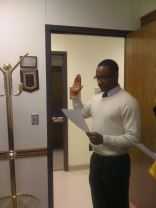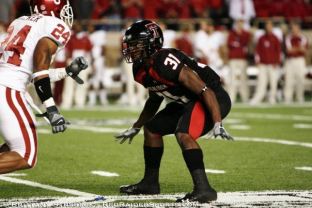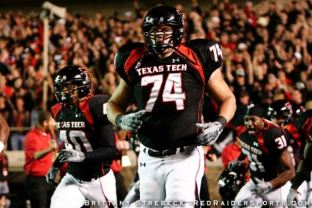“Saving Our Athletes Respectfully"
Created By
Peter Richardson, Jr.
Student athletes are the faces of many schools in the nation; often times, athletes are put on a pedestal by their peers and, sometimes, instructors. With that being said, an athlete goes through his or her college career feeling loved by everyone and being the center of attention, in most cases. The transition, from being part of something you have dreamed about your entire life, to being placed in the same category that the majority of society is in becomes difficult. One must first consider that all athletes come from different backgrounds; then, consider the experiences that come with being a student athlete. Not only do the athletes have to deal with the nonsense of the media, but also have to learn to cope with the different coaching mechanisms of their coaches. Learning to cope with one’s sport problems is, hands down, one of the hardest obstacles to overcome; I know that from experience. Not only does an athlete have to focus on his or her performance on the field, but also in the classroom. Often times, the athletes’ participation during their season dictate their performance in the class room. In Division One sports, whether an athlete is labeled a star in the media, school, or news, the majority of, if not all, athletes are held to a higher standard and are viewed as in a higher status group than non-athletes. This results in living in the public eye. If you turn on the television today, you will see that living in the public eye is not an easy thing to do. Athletes go their entire college career in this public eye, maintaining sports and academics. Athletes then continue to graduation and move to the next level; some drop out of society, some move back home, some even stay in their college town and struggle to make ends meet.
No matter which path the athletes choose to take, they have to form new identities and new senses of self. Those athletes that choose graduation may not have planned or even thought about their futures seriously. Once their collegiate career comes to a conclusion, if it does not result in a professional athletic career, most are clueless. Even those athletes that are good enough to make it to the next level are often ignorant about what to do with their money. Athletes that drop out before graduation obviously have no long term career plans. Those that go back home usually go back to places that they worked very hard to get away from. Some get involved in activities with people who they think care about them and get in some kind of trouble with the law. Then, they find themselves in a state of depression. Often they are saddened and wonder why they did not take advantage of their opportunities as student athletes. Both groups seldom know about the resources, outside sports, so that they can get involved with the community and get quality business experiences.
I know this from experience. I know how hard it is make that transition from the field to the workforce. I left Texas Tech in the fall of ’08 and attended a Division II School for a year; it opened my eyes to the real world. I am not saying that my life at Tech was all peaches and cream and a fantasy, but, as an athlete, I pretty much had it made. I had academic advisors and tutors to report to and the whole nine yards. I am not saying those were bad things, but figuring out my schedule for classes was not something I put a lot of effort into. That was not the case at My DII School. I had to take my destiny in my own hands, because I could see that no one was interested in my future. So, I had to grow up. I learned about different internships, career opportunities and how to handle myself professionally. My athletic career ended there, because of a major concussion I received on Senior Day, the last game of the season, which put me out of football permanently. I chose to not continue my education there; I want a degree from Texas Tech University. So, I spent about six months back home in my home town, Muskogee, Ok, before moving back to Lubbock. I was at the lowest point of my life while I was there. I saw a lot of people turn their backs on me; I could tell I was not viewed in the same way as I had been before. I was back in the place that I worked so hard to get away from. Being back there put me in a state of depression, which made me vulnerable to making excuses and feeling sorry for myself. I prayed for God to give me the strength to get me back to Lubbock, the place that had become my home. Back at Texas Tech University, I saw the world differently and was ready to make the changes to become successful. God blessed me; since then, I have excelled. I pursued and captured an internship with the Disney Corporation; that is when I knew I was meant to take part in something great. I developed excellent customer service skills and a tremendous passion for people. That being said, I want to help those in need. I want to eliminate the fear from the athletes’ minds that comes when they realize that their dreams could be over. I want to encourage those in doubt of their intellectual intelligence; I desire that they will believe that success can come from a great job that is not sports related. I want to let them know that they are not alone and that I have felt like they do, if not even worse. This is why I would like to introduce the program I created: SOAR! It means Saving Our Athletes Respectfully! SOAR is designed for all senior student athletes, to give them business networking opportunities, to help provide financial security, and provide emotional stability. Knowing the majority of athletes are often the last hope for financial security for their families, I want to take away some of the pressure of making it to the next level. I would like to let them know that, if they handle their opportunities responsibly while they have the chance, they can also choose career paths that will provide for them and their families. Depending on how they handle their career choices, they may be able to open doors for their family members. Whether they become managers in corporations and hire their family members, or open businesses and give opportunities to those in need, they will give back to their communities.


